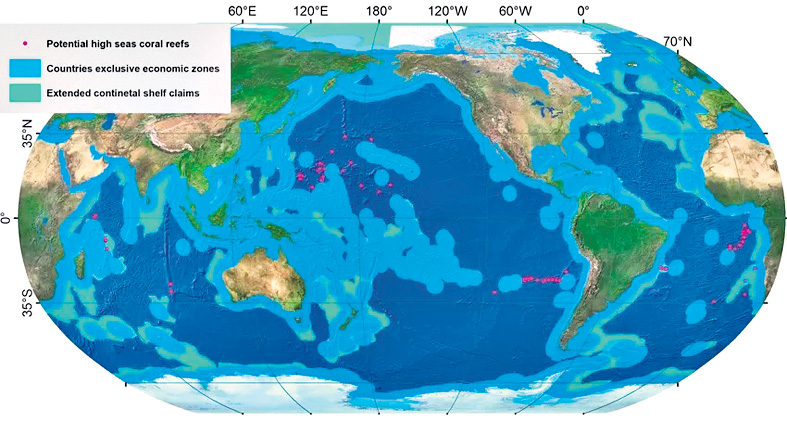A new study has identified 116 deep-sea coral reefs which scientists say are every bit as much in need of protection as the coastal reefs. They lie between 200 and 1,200 metres deep in waters where no single nation has jurisdiction.
The value of coral reefs in the marine ecosystem has long been recognized. Although they cover just 0.1% of the seafloor, they provide a home for a quarter of all marine life. Scientists warn that climate change could kill all of them by 2100 unless action is taken.
Rainforests of the sea
Unlike coastal coral reefs, the deep-sea corals have evolved to live below the photic zone, the uppermost part of the sea where light penetrates. While 845 reef building coral species live in the photic zone, only six species are known to form deep water reefs.
Now the first comprehensive survey of deep sea coral reefs has been published, pinpointing the location of some of them. And there are probably many more high seas reefs yet to be discovered, say researchers.
Protecting deep-sea reefs
In international law, the high seas belong to no one and everyone, which makes it hard to organise conservation efforts. So these deep-sea reefs, which are just as important for marine biodiversity as their coastal cousins, are hard to protect.
A handful of them lie more than two kilometres below the surface and can only be visited by specialist submarines. Only one-fifth of deep water coral reefs have any form of protection from bottom fishing like trawling. None is protected from the effects of shipping.
Scientists have discovered that these deep-sea corals like to grow on steep-sided seamounts, or underwater hills, and are found in the Pacific and Atlantic oceans, with a few in the Indian Ocean.
Conservation efforts
Tackling the degradation of oceans is also critical to halting climate change. Oceans cover 70% of the Earth’s surface, generate over half of the world’s oxygen, absorb half of the carbon emitted globally and account for 80% of biodiversity.
Last year, a group of experts in ocean science, policy, law and communications formed the Coral Reefs on the High Seas coalition to protect these deep-sea reefs.
The coalition hopes to influence a United Nations intergovernmental conference that has been convened to draft a new international treaty on biodiversity of the high seas to protect the deep ocean from exploitation by harmful activities such as sub-sea mining. But progress on the new treaty has been stalled by the Covid-19 pandemic.
• More than 116 coral reefs have been discovered in the deep ocean.
• Some live at depths of over 2km where sunshine never penetrates the gloom.
• Researchers say they are as important for biodiversity as coastal reefs.
• Efforts towards legal reef conservation disrupted by the pandemic.
Now you can get handpicked stories from Telangana Today on Telegram everyday. Click the link to subscribe.
Click to follow Telangana Today Facebook page and Twitter .


